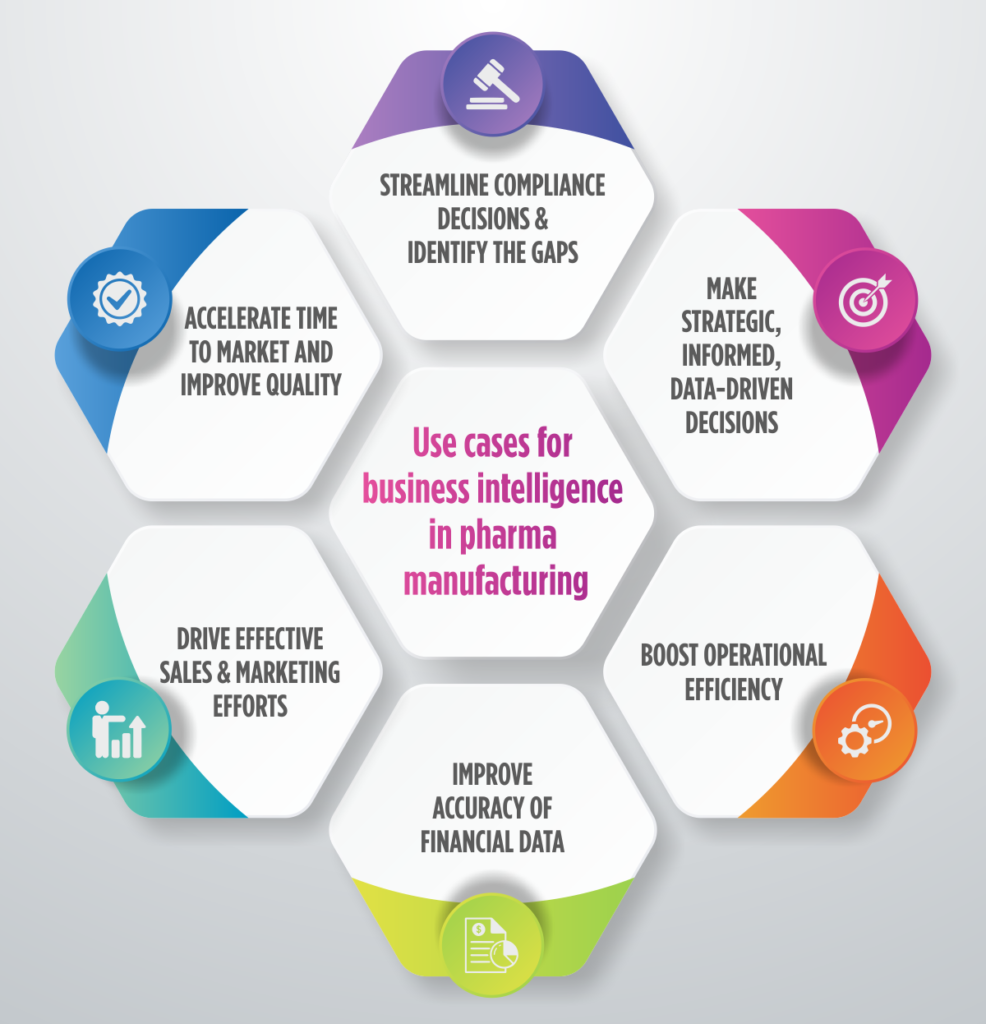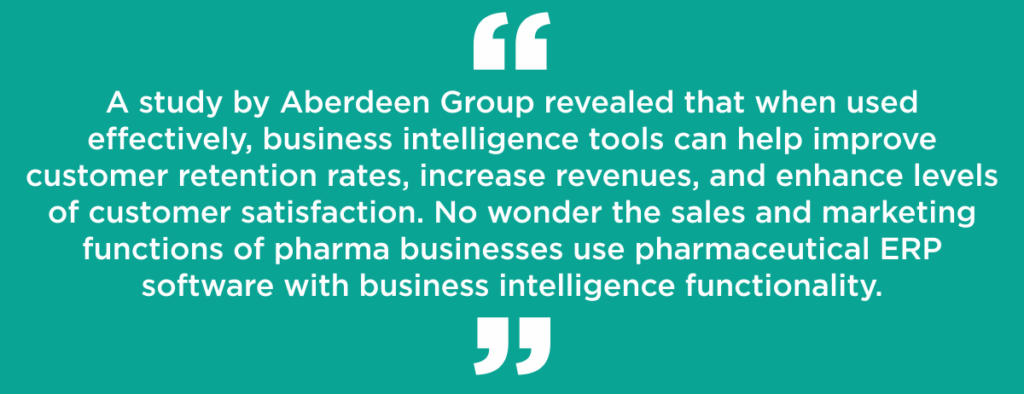
Around a decade and a half ago, British mathematician and entrepreneur Clive Humby coined the phrase “data is the new oil”.
The idea behind this statement was that data, just like oil, is valuable only if refined, and hence it must be broken down and analyzed to create value.
Today, in 2021, this statement still holds true, as data is more valuable than ever in the digital economy.
In fact, leveraging the true potential of the data is vital not just for the smooth functioning of virtually every business, but also for keeping the businesses ahead of the curve.
This assertion holds particularly true for the pharmaceutical manufacturing businesses, since there are a variety of factors that come into play, and the stakes are also high as compared to other industries.
Being one of the most regulated businesses, pharma businesses also face challenges a plenty.
Innovation and lesser time-to-market products need of the hour
Having access to safe and advanced pharmaceutical drugs does not come easy, as the challenges commence for the pharma manufacturers as early as from the development stage.
The path of a marketed drug includes high cost, a lot of time, and an exhaustive journey through research,discovery, pre – clinical development tests, clinical trials, and finally the regulatory approvals.
The major challenges lie in research and development of new drugs and ensuring that breakthroughs are made before the competition.
Thus, what the ever-changing pharma market demands is increased innovation and lesser time-to-market products.
This makes it essential for pharmaceutical manufacturing businesses to focus on emerging technologies and tools that can help enhance various aspects of the business’ operations, such as meeting evolving demands of the market, ensuring compliance with stringent regulations, and more.
Help arrives in the form of business intelligence
Pharmaceutical businesses get ideal help from the business intelligence tools that can mine, analyze, and turn huge data into actionable insights.
Such tools help pharma manufacturers handle data generated from the disparate data sources, and store and process the varied formats of data, with élan.

This stat confirms that with data becoming increasingly available, more pharma manufacturers are leveraging the latest technologies and approaches like business intelligence to maintain or improve the quality of that data.
The results have been encouraging. Just to name one, such tools have enhanced the pharma businesses’ ability to remain compliant with continually changing regulations worldwide.
Let’s take a closer look at why business intelligence is important for your pharma manufacturing, through this blog:

But before that…
If you are a pharma manufacturer (including both contract manufacturers and manufacturers of generic products) and you have read thus far, there are a few questions you may ask yourself.
Do you really have access to all the key business data? Are you actually analyzing all the information that comes from different channels and sources? Are you generating measurable value from your data analysis?
If the answers are yes, you are doing well. But if it is a no, you must continue to read further to find out how business intelligence tools can help you make the most of your business data.
Adhering to compliance
Business intelligence is finding prominent position in pharmaceutical manufacturing organizations through various avenues, one of which is regulatory compliance reporting.
When it comes to regulatory compliance, it is otherwise difficult to track, compare, and maintain the internal data with the standard data sets provided by the government.
However, an ERP in pharmaceutical industry with its business intelligence capabilities eliminates the need of interdependency within different business functions, and allows accessing key metrics and reports easily at any time.
This offers the businesses a way to measure the performance of several operations against the set standards, and notify the departments or processes that do not meet the standards.
Improved quality and speed to market
Pharmaceutical manufacturing businesses are under intense pressure to bring products faster to the market while maintaining the quality standards and keeping the costs down.
To achieve this, it is important to monitor and manage clinical data.
The analytical capabilities offered by business intelligence tools such as ERP for pharmaceuticals make it easy for the pharma manufacturers to track information provided by clinical trials, and research and development processes.
Moreover, the insights gathered enable them to identify inconsistencies, inspect risks, and avail the necessary quality checks to ensure products are of finest quality.
Boosting marketing and sales efforts

Such tools offer interactive reports that allow pharma manufacturers to forecast which product category is going to sell in future, and which one would require a push.
By utilizing the insights provided by such solutions, businesses can improve the accuracy of their forecasts, maintain optimal inventory levels, identify demands, slow-moving drugs, and optimize collaboration with customers, suppliers, and partners.
Operational benefits
It is important for the pharma manufacturers to monitor the huge amount of data generated across its different functions from the operational point of view.
For ex: business areas such as supply chain, production levels, product qualities, operational costs, employee productivity, etc., need to be tracked to ensure resources are used effectively.
Pharma ERP, which comes equipped with the business intelligence capabilities, provides pharmaceutical companies with in-depth analytical reports, which offer valuable insights that allow them to operate more efficiently, optimize their competitive edge, and increase revenue.
It also allows them to track the expenses and keep the costs down.
Financial analysis
Financial data is an integral part of any business, and pharma manufacturing businesses are no different.
It is one of their most important goals to make more money, and better manage the money they already have by closely monitoring it to know where it goes and what result it brings.
An ERP software system in pharmaceutical industry with business intelligence capabilities helps pharma companies monitor their financial transactions and predict requirements and issues proactively, which in turn helps them avoid or remain prepared for any untoward situations.
Such solutions are also capable of generating quarterly, annual, and other mandatory financial reports.
Improved decision making
A major advantage offered by the business intelligence functionality of an ERP in pharmaceutical industry is improved decision making.
By delivering extensive analysis and reports, it allows pharma manufacturers to integrate data collected from different sources in real time, and eventually make data-driven, informed, and accurate decisions across the business.

To sum up
The potential of business intelligence in pharma manufacturing businesses is limitless. However, it can be particularly helpful for pharma businesses in the areas such as supply chain, marketing & sales, finance, regulatory compliance, and quality assurance.
An ERP for pharmaceuticals, which manages all the aforementioned aspects of a business efficiently, can add more value to the business when business intelligence functionality is added to the mix.
It can help your pharma business monitor the huge data that flows across the entire organization and turn it into useful, actionable insights to achieve operational efficiency and improved decision-making.
For further information on how BatchMaster’s ERP software for pharmaceuticals, which comes loaded with the business intelligence capability, can help you with a 360-degree view of your business, get in touch with our in-house ERP experts.




















